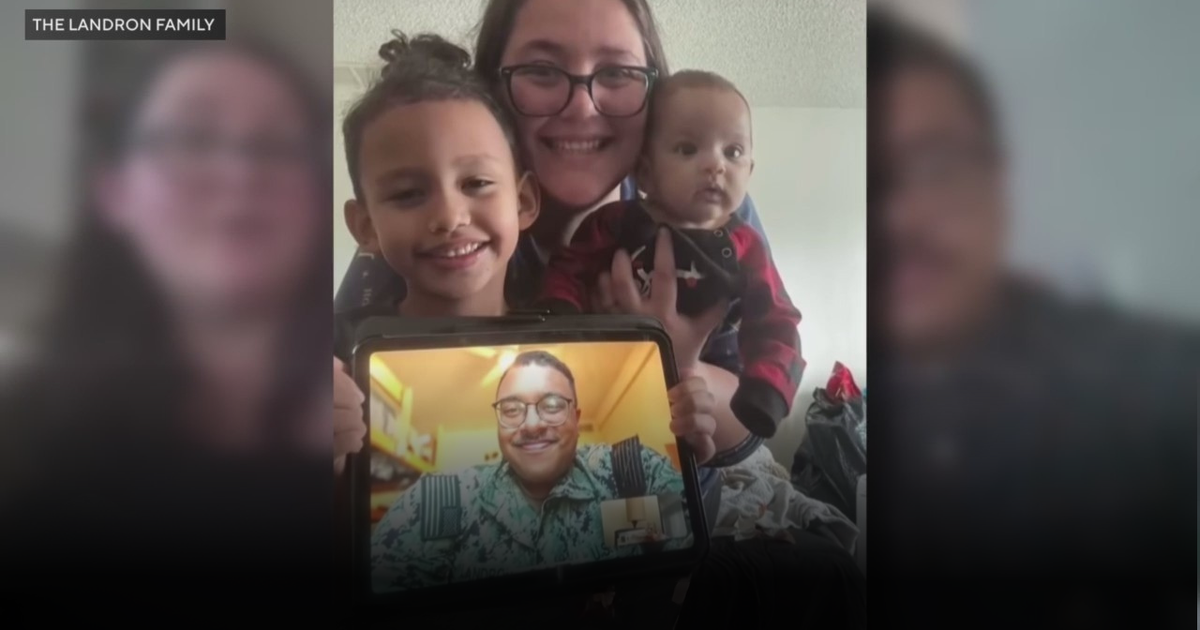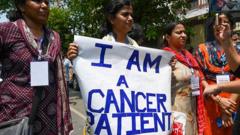How Did a Life-Saving Implant Transform a Baby's Year of Isolation in LA County?

Published: 2025-09-16 05:40:08 | Category: Trump GNEWS Search
This poignant story highlights the remarkable journey of Syanne Landron, a baby born without a thymus gland, who recently underwent a pioneering thymus implant procedure. After 13 months of strict isolation in Santa Clarita, California, her family hopes this life-changing operation will enable her to live a more normal life, despite the ongoing challenges of being immunocompromised.
Last updated: 26 September 2023 (BST)
Understanding the Thymus Gland and Its Importance
The thymus gland, located in the upper chest, plays a crucial role in the immune system, particularly in the development of T-cells, which are vital for fighting infections. Without a functioning thymus, individuals like Syanne face severe vulnerabilities to infections and diseases. This condition, known as thymic aplasia, can lead to life-threatening complications, especially in infants.
Key Takeaways
- Syanne Landron was born without a thymus gland, requiring her family to isolate themselves for over a year.
- The pioneering thymus implant procedure has a 70% success rate and was approved by the FDA in 2021.
- Post-surgery, Syanne will remain immunocompromised and must continue isolation for at least six months.
- The procedure costs approximately £2.5 million and involves implanting tissue from another infant.
- Ongoing medical care and precautions will be necessary as Syanne’s immune system develops.
The Landrons' Journey of Isolation
Since Syanne's birth, her parents, Marilyn and Alex Landron, have taken extraordinary measures to safeguard her health. This included a self-imposed quarantine, where they avoided all social interactions, celebrated holidays from a distance, and received food deliveries from friends and family.
“We don’t see anybody,” Marilyn stated, reflecting the stringent precautions they took. “Even if we're going to the trash, we put a mask on.” This level of isolation illustrates the intense fear and responsibility felt by parents of children with severe health vulnerabilities.
The Impact of Thymic Aplasia on Families
The diagnosis of thymic aplasia not only affects the child but also has profound implications for the family’s lifestyle. Parents often face emotional and psychological challenges as they navigate this stressful situation. For the Landrons, every moment spent in isolation was a reminder of the risks associated with Syanne's condition.
The Pioneering Procedure: Thymus Implantation
In 2021, the FDA approved a groundbreaking procedure at Duke University Medical Center, allowing surgeons to implant thymus tissue from a deceased infant into patients lacking a thymus. This innovative surgery aims to kick-start the immune system by providing the necessary components for T-cell development.
Success Rates and Expectations
The Landrons learned that the procedure has a reported 70% success rate, which improves as the child grows and the immune system begins to function more effectively. For Syanne, being the 52nd recipient of this operation marks a significant step towards a more normal life.
The Journey to North Carolina
In August, the Landrons travelled to North Carolina for Syanne’s surgery. The family took extensive precautions, including travelling via a private medical jet and using ambulances to minimise exposure. This careful planning underscores the lengths to which parents will go to protect their children.
“I handed her over, and I think that was probably the hardest part. I cried,” Marilyn recalled of the moment they had to separate from their daughter during the surgery.
Emotional Support During a Critical Time
Throughout the process, the support of family and friends has been crucial. The Landrons received updates from the medical team, and the joy was palpable when they were informed that the surgery was successful. “There’s finally a light at the end,” Alex expressed, summarising the relief felt by the family.
Post-Surgery: What Lies Ahead
Following the surgery, Syanne will need to continue her isolation for at least six months. During this period, her immune system will gradually develop, but she will remain more susceptible to infections than her peers. The family anticipates challenges, including a heightened response to illnesses that most children would handle with ease.
Living with an Immunocompromised Child
Parents of immunocompromised children face unique challenges, such as ongoing medical appointments, careful monitoring of health, and maintaining a hygienic environment. The Landrons understand that while the surgery is a significant milestone, it is just one part of a long journey.
“Her immune system will always be a little weaker than everyone else’s,” Alex explained. “Sicknesses will hit her harder than regular people, but she’ll live.” This acceptance reflects the resilience required to navigate life with a child who has special health needs.
The Financial Burden of Medical Care
While the emotional and physical toll of caring for an immunocompromised child is profound, the financial burden is also significant. The thymus implant procedure costs approximately £2.5 million, which raises questions about accessibility and insurance coverage for families in similar situations.
Many families might find themselves struggling to finance such life-saving treatments, highlighting the need for healthcare reform and greater support for families with children who have complex medical needs.
Looking Towards the Future
The Landrons remain optimistic about Syanne's future. As her immune system develops, they hope to gradually reintroduce her to the world. They understand the importance of balancing caution with the need for social interactions and experiences that contribute to a child's development.
Long-Term Care and Monitoring
Even after the initial recovery period, Syanne will require ongoing medical supervision. Regular check-ups will be necessary to monitor her immune system function and overall health. This long-term commitment can be both a source of stress and a pathway to improving her quality of life.
Conclusion: A Journey of Hope and Resilience
Syanne’s story is a testament to the strength of her family and the advancements in medical science that offer hope for children born with severe health challenges. While the journey ahead may still be fraught with difficulties, the Landrons' experience highlights the power of love, resilience, and the relentless pursuit of a better quality of life for their daughter.
As Syanne continues to grow, her family remains committed to ensuring she has the best opportunities for a fulfilling life, despite the challenges posed by her condition. This story serves as an important reminder of the everyday heroes who navigate the complexities of caring for children with medical needs. What other advancements in medicine could change lives for families like the Landrons? #ThymusImplant #Immunocompromised #ChildHealth
FAQs
What is a thymus gland and why is it important?
The thymus gland is essential for developing T-cells, a type of white blood cell that helps the body fight infections. Without it, individuals can be severely immunocompromised.
What is thymic aplasia?
Thymic aplasia is a condition where a child is born without a functioning thymus gland, leading to significant vulnerability to infections and diseases.
What is the thymus implant procedure?
The thymus implant procedure involves transplanting tissue from a deceased infant's thymus into a child lacking a thymus, aiming to kick-start their immune system.
What is the success rate of the thymus implant?
The thymus implant procedure has a reported success rate of 70%, which may improve as the child grows and their immune system develops.
How long does a child need to isolate after the surgery?
After the thymus implant surgery, children typically need to isolate for at least six months to allow their immune systems to develop safely.
What long-term care is required for children with thymic aplasia?
Children with thymic aplasia require ongoing medical monitoring and care to assess their immune system function and manage potential health issues as they arise.



